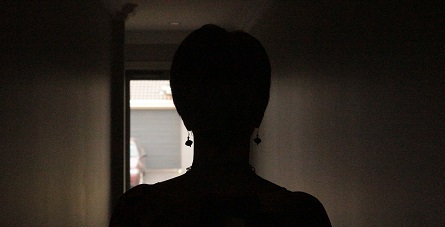Familial ties
Cutting off circulation
Let them loose, be free

Familial ties
Cutting off circulation
Let them loose, be free

Thoughts on a conflict observed:
Hard words, accusing
Bite into relationship
They keep on, limping

 I am not a fan of the wind. I’m not talking about the more romantic notion of a gentle breeze on a summer’s day that brings relief from the heat or whispers through overhead branches. No, I’m talking about the kind of wind that rearranges carefully arranged hairstyles, that wraps the laundry around the clothesline, that dumps plumes of red dust on my car and my windows, that sets off the sensor lights at the front door, which in turn sets off the dogs, that roars up and down the side of our house and whistles through cracks and crannies – you get the idea.
I am not a fan of the wind. I’m not talking about the more romantic notion of a gentle breeze on a summer’s day that brings relief from the heat or whispers through overhead branches. No, I’m talking about the kind of wind that rearranges carefully arranged hairstyles, that wraps the laundry around the clothesline, that dumps plumes of red dust on my car and my windows, that sets off the sensor lights at the front door, which in turn sets off the dogs, that roars up and down the side of our house and whistles through cracks and crannies – you get the idea.
I am not a fan of the wind, but I have to stop and consider the reality that wind is a strong metaphor for the Spirit of God. The coming of the spirit was accompanied by a sound like the rush of a violent wind.
Some years ago, I attended a retreat at Queenscliff. It was winter and the weather was stormy. When I ventured out, I did so with lots of layers – hat, coat, scarf, gloves. On one occasion, I rugged up to go outside to walk the labyrinth. The wind was roaring, chilling my face, biting my nose and ears.
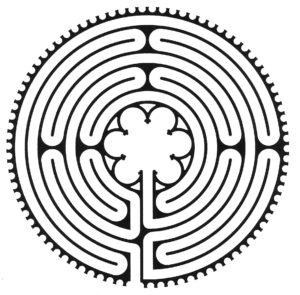
Chartres labyrinth
If you’ve ever walked a labyrinth, you’ll know that it twists and turns back on itself as you make your way into the centre, so one moment the wind was full into my face, the next it was pushing me from behind. At first, I persevered – I ducked my head, buttoned my coat up higher, held onto my hat and tried to keep my scarf up around the lower part of my face. But, there came a point where I decided it was too much, I would give it up rather than fight the wind and that’s when I heard very clearly, not a voice from heaven, but in my spirit, ‘turn your face into the wind’.
My first response was, ‘I don’t think so’, but the sense of the message was so strong that I eventually lifted my head, took off my hat and let the wind blow. That’s when I remembered that one metaphor for the Spirit of God is wind. God is in the wind.
Later, I walked the beach in this wild weather. The water was choppy and grains of sand stung my face, both kicked up by the wind. The tide was coming in and as I walked, the breaking waves washed away my footprints. At the time, there were a number of things happening in my experience which I knew would bring turmoil and change that I didn’t want it. But walking in the wind – first the labyrinth and then the beach, reassured me that the Spirit is in the wind. Together, we would weather the coming storms.
On the day of Pentecost, the first sign of what was happening was the sound like the rush of a violent wind. The inclusion of the word, ‘violent’ in this description tells us that it wasn’t a comforting sound.
When the Spirit comes, the experience is not always comfortable. Sometimes, a violent wind rearranges our carefully arranged lives, chills our faces and strikes fear into our hearts. Sometimes we are confused and amazed and perplexed so that we want to deny movement of the Spirit. We may even want to simply say ‘no’, or to explain it away.
Pentecost invites us to open ourselves to the holy in-breathing of the Spirit of life in whatever way the Spirit comes. Despite my dislike of the wind, I want to be ready to give my ‘yes’.
Spirit…
energy of the dance…
promise in the water…
rush in the wind…
rhythm in the word…
poetry of the faith…
silence in the horror…
patience in the waiting…
question in the wonder…
curve on the horizon…
brightness in the sun…
speed in the light…
life in the resurrection…
Come Spirit…
be it all…
and bring us into renewal once more…
~ written by Roddy Hamilton, and posted on Mucky Paws
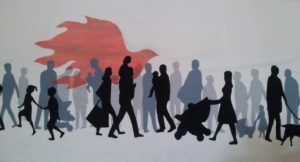
I took this photo at Faith and Fabric exhibition at Brunswick Uniting Church on 09 November 2014
‘That they may be one’; this is the prayer Jesus prayed for those who would believe in him long after he was gone. It’a a prayer that continues to reverberate as Christ believers still behave in ways that undermine the unity of the Christian church and thus, the credibility of the idea that God is at work in the world.
Inspired by a retreat that I attended last month, which introduced me to the idea of Quantum Entanglement I’ve been challenged and excited by the lectionary readings in recent weeks with their emphasis on how our relationships with each other have the power to change our surroundings and indeed, the world.
When we observe the other with love, particularly that prickly, unlikeable other; that has the power to make a statement to the watching world about discipleship: quantum entanglement. When we love our enemy and pray for our persecutor; that has the power to push back the darkness inherent in enmity: quantum entanglement.
When we desist from labelling the clean and unclean, that has the power to change perceptions and the history of the church: quantum entanglement.
Whenever the church, empowered by the Spirit of God, allows that its many expressions and diversity of views are one under God, observers catch a glimpse of God in Christ. This, in turn, enables something of the love of God to break through: quantum entanglement.
Unity is not easy; it takes effort, but the power of unity is more than we can know or understand – it’s a power to change the world: quantum entanglement.

A simple question:
‘Do you want to be made well?
No easy answer.
∼
Walls already built
Reasons why we can’t or won’t
That’s the way it is.
∼
Yet, invitation:
‘Stand up, take your mat and walk’
Brand new consciousness.
∼

Inspired by the Gospel of John 5:1-9
I met him last week on the steps on The Royal Women’s Hospital. He was coming up, while I was going down. He spoke to me. I hesitated, he stopped.
‘Do you work here?’ he asked.
‘No,’ I said, stopping too.
‘What do you do then?’
‘I’m a minister of religion,’ I told him. A mistake.
He immediately pounced; began to tell me about experiences he’d had, religious and otherwise. About his girlfriend’s experiences, how young she was and his need for someone with more knowledge.
It was raining. I had an umbrella, but he was getting wet. I angled my brollie in an attempt to shelter him a little. He didn’t seem to notice and talked on, asking me questions but leaving me no time to answer. He didn’t need answers.
He had a theory, a conspiracy theory. Inwardly, I groaned, but none-the-less decided I would hear him out. A mega-virus with the capacity to wipe us all out. He had a sample of it with him and he held up a small esky. He should get going. He was taking it inside and he looked up at the hospital.
‘This is the Women’s,’ he said. ‘I’m at the wrong entrance. I’m going to the Melbourne.’
He laughed and turned away from me. Continuing down the steps towards the street corner and my car, I heard him call out. I turned to see him waving at me.
‘Thanks,’ he said, ‘thanks for listening!’
Sometimes, it doesn’t take much to show mercy.
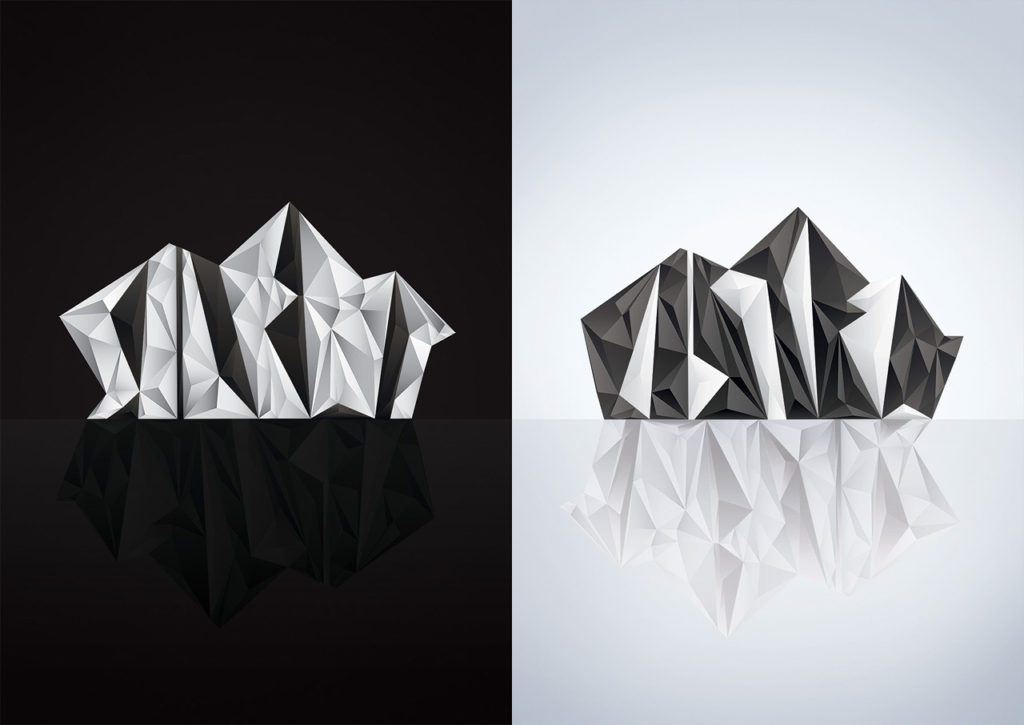
Image found at: http://annatrundle.com/silentlisten
 Happy International Women’s Day!
Happy International Women’s Day!
Today, I’m waiting on the arrival of a third grandchild (perhaps a second grand-daughter) who’s now two days overdue. With this imminent arrival constantly on my mind, I’ve watched again this video, put out by 1 Million Women, who have transformed John Farnham’s much-loved song, ‘You’re the Voice’ into ‘a powerful anthem from women for climate action and hope’.
What has most moved me in the viewing is the variations on the theme:
… together with the multitude of faces depicting:
Here’s to a world where my grandchildren, both the boy(s) and the girl(s), will raise their voices together in unity, for They’re the Voice!
They’re the Voice, You’re the Voice, We’re the Voice, I’m the Voice!
Watch 1 Million Women’s Video here
Whoever visits a sick person is plunging into mercy until he sits down, and when he sits down he is submerged in it.
Silsilah Al-Saheehah
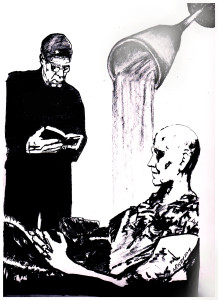 I came across this quote from the Islamic prophet, Muhammad, when I attended a professional development day at the Islamic Council of Victoria. The event had begun at 6.00am so that participants could observe the early prayers of the Muslim day, and I wasn’t too alert as someone talked about the needs of Muslim patients in hospital. Until this quote appeared on the screen.
I came across this quote from the Islamic prophet, Muhammad, when I attended a professional development day at the Islamic Council of Victoria. The event had begun at 6.00am so that participants could observe the early prayers of the Muslim day, and I wasn’t too alert as someone talked about the needs of Muslim patients in hospital. Until this quote appeared on the screen.
Now, I was awake, grabbing a pen and writing it down. Later, I asked the speaker about Silsilah Al-Saheehah. Who or what is this? She informed me that this is the name given to the authenticated sayings of the Islamic prophet, Muhammad; the literal translation is ‘The Authentic Series’.
At the time, I was working in pastoral care in a public hospital and it spoke directly to my work. This is what I was doing – visiting the sick, usually sitting at their bedside. I had thought of myself as offering mercy, perhaps even bringing it with me, but the prophet, Muhammad, turned that notion on its head and revealed the egoism in it.
Mercy precedes me whenever I visit the sick. It is already there.
I enter into it, more than that, I immerse myself in it. Mercy envelopes me.
In the action of visiting the sick, I gain as much as I may give.
I shouldn’t have been surprised by this notion as I knew its truth from experience. When I was twenty-three years old, I gave birth to twin boys. They were eight weeks premature and while one has grown to manhood, the other only lived for four days. He died after we had given permission for life support to be discontinued. We were told we could stay until the end, but if we didn’t a nurse would sit with him. I could not and did not stay. I had no experience of death at that time and no resources on which I could draw.
More than twenty years later I met another twenty-three year woman whose son would not live. She was still in the labour ward, but had asked that he be removed from the room. She could not watch him die. Would I sit with him?
It was after hours. How long could I stay, how long would it take? These were the uppermost questions when I first sat down beside him, but after a time, they no longer seemed relevant as it dawned on me that I was doing something for this young woman that another woman had done for me. I would stay as long as it took.
When I left the hospital that night, I knew a circle had been closed and I had received more than I had given. Moreover, it was Lent and resurrection had come to me.
I plunged into mercy when I entered that room and as I sat there, I was submerged in it.
I’ve recently finished reading Italian author, Elena Ferrante’s captivating Neapolitan series. I discovered Ferrante after coming across this article:
http://www.newyorker.com/magazine/2013/01/21/women-on-the-verge
In my writing studies, I’ve often heard that authors must become adept at ‘shameless’ self-promotion in order to find a readership. Yet, Elena Ferrante has found international readership for her eight novels without performing a single act of self-promotion. Further, she has chosen withdrawal and anonymity. The public do not know who she is.
When her first book was published, she told her publisher,
‘I believe that books, once they are written, have no need of their authors. If they have something to say, they will sooner or later find readers; if not, they won’t … True miracles are the ones whose makers will never be known.’
This runs counter to our technological age where many of us put our writings ‘out there’ every day, firmly attached to our name and our #hashtags. Elena Ferrante has put me in mind of something Jesus said, that we ought to beware of practicing our piety in order to be seen by others.
There are more important rewards than being known.
